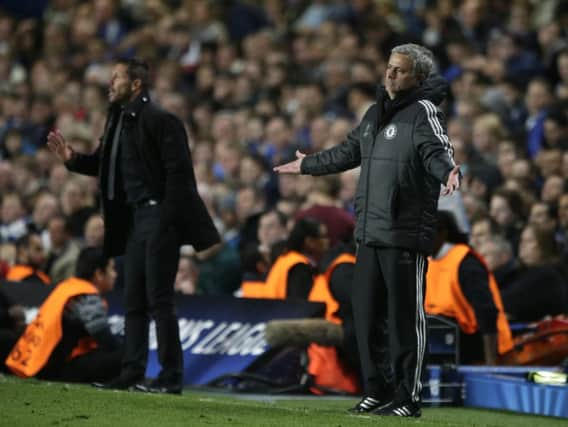Glenn Gibbons: Atletico win recalls Stein’s Celtic


The notion that Mourinho’s readiness to body-swerve the elements of artistry and creativity that distinguish the most popular ball game on the planet would, to use the Scottish vernacular, “get fitba’ stoapped” had been gathering momentum even before the 2012 triumph that made them among the most soulless and least joyful European champions in history.
The final itself, during which Chelsea appeared determined to execute the kind of relentless defending that would result in a penalty shoot-out against Bayern Munich in the latter’s own Allianz Arena, was merely a reproduction of the form they had shown throughout the competition.
Advertisement
Hide AdAdvertisement
Hide AdAt its core was an unshakable devotion to the theory that a refusal to engage in legitimate combat – instead relying on a constant rearguard action – would eventually bring the mistake from more adventurous opponents and the chance to steal the potentially decisive goal. Achieving their objective, victory from a Didier Drogba penalty following a goalless 120 minutes, was not a pretty sight.
What Atletico produced on Wednesday – the more cheering, too, for having taken place in London and after Chelsea had sneaked the lead with a deflected shot by Fernando Torres – was the kind of game-changing blow with which Celtic struck Internazionale in Lisbon in 1967.
The Inter coach, the Argentine Helenio Herrera, was so dedicated to the cause of ultra-defensiveness that he was credited with the invention of catenaccio, the notorious system dreaded by all who had the misfortune to meet an Italian side in that era.
Like Mourinho, Herrera was difficult to love, but he was still held in ludicrously high esteem by many people who argued that the honours he captured justified the barrenness of his methods. Nobody could possibly accuse Mourinho of a lack of intelligence or talent but, every time his team takes the field on the greatest of occasions, it is impossible not to anticipate watching a B-movie featuring A-List stars.
In 1967, Jock Stein’s philosophy was a disavowal of Herrera’s profanity, a conviction articulated as impressively as only the great Scottish manager could when the conversation turned to serious matters.
“Inter will play it defensively,” he said of the match. “That’s their way and it’s their business. But we feel we have a duty to play the game our way and our way is to attack. Win or lose, we want to make the game worth remembering. Just to be involved in an occasion like this is a tremendous honour and we think it puts an obligation on us.
“We can be as hard and professional as anybody, but I mean it when I say we don’t just want to win this cup. We want to win it playing good football, to make neutrals glad we’ve done it, glad to remember how we did it.”
The significance of Stein’s words is that they were spoken before the match.
Advertisement
Hide AdAdvertisement
Hide AdThe fact that they could not be construed as a winner trying to be clever after the event gave his ambitious assertion total authenticity.
It was, for the manager, clearly a moment of towering pride when his deepest wish was shown to have been granted in the most eloquent way possible.
An elderly Portuguese official, himself obviously a disciple of Benfica’s thrilling brand of aesthetically dazzling football, confronted Stein soon after Celtic’s 2-1 victory, completed in irresistible, rampaging style. “This attacking play, this is the real meaning of football,” he said. “This is the true game.”
Stein slapped him on the shoulder and said, “Go on, I could listen to you all night.” Then, turning to the small gathering of journalists beside him, he shook his head in wonder and said, “Fancy anybody saying that about a Scottish team.”
Waiting around to hear such an exchange in any dressing room occupied by Jose Mourinho and his Chelsea side would be an exercise to compare with hanging around for a word of remorse from Hannibal Lecter.